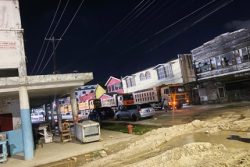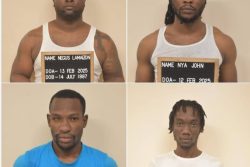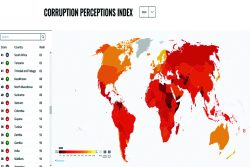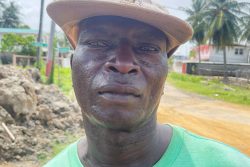GENEVA, (Reuters) – The United Nations released a report on Friday documenting hundreds of atrocities in the Democratic Republic of Congo and suggesting ways to end the climate of impunity for the violence.
The report is an attempt to cover rights abuses in the former Zaire between 1993 and 2003 in which tens of thousands of people were killed and many others raped, mutilated or otherwise victimized.
The period of the report was marked by a string of political crises, wars and conflicts in the region that led to the deaths of millions of people.
“No report can adequately describe the horrors experienced by the civilian population … where almost every single individual has an experience to narrate of suffering and loss,” U.N. High Commissioner for Human Rights Navi Pillay said in a foreword.
The report says it covers one of the most tragic chapters in the recent history of the Congo, already a byword for the horrors of colonial oppression in the 19th and 20th centuries.
Congo’s U.N. ambassador, Ileka Atoki, called in a statement for international aid to help the country bring the perpetrators of the violence to justice.
Asked by reporters in New York if Secretary-General Ban Ki-moon would push for trials of those responsible for crimes committed in Congo, U.N. spokesman Martin Nesirky said it would be up to the Congolese authorities to pursue legal action.
U.N. Security Council diplomats said privately there was no appetite for the 15-nation council to take up the issue or push for the prosecution of anyone implicated in the report.
At least 21 armed Congolese groups were involved in serious human rights violations, and the military forces of at least eight other states operated inside the country, the report said.
All armed forces systematically used rape as a weapon against civilians, at least 30,000 children were recruited or used by armed forces, and government security forces were among those committing the abuses, the report said.
It lists violations of rights linked to the exploitation by domestic and foreign operators of the vast central African country’s natural resources, which include copper, cobalt, gold, tin and the mineral ore coltan used for mobile phones. The release of the report was delayed by a month to allow neighbouring countries involved in fighting in the Congo, whose troops are alleged to have taken part in atrocities, to comment. Comments were posted on the U.N Human Rights website rather than being included in the report.
Rwanda had threatened to pull its peacekeepers out of African hotspots after a leak suggested the report had found its forces committed genocide in the Congo.
Rwanda withdrew the threat after the intervention of the U.N. secretary-general, but said yesterday that it had the right to review future engagements with the world body and said publication of the “flawed” report could threaten regional stability. Only a court can determine whether the violence against Hutus amounted to genocide, said the report, whose final text watered down language on genocide in the leaked draft.
The period covered by the report saw the fall of dictator Mobutu Sese Seko and a five-year conflict involving several foreign armies, including Rwanda’s Tutsi-led force.
After quashing the 1994 genocide of 800,000 Tutsis and moderate Hutus in Rwanda, Kigali’s army invaded Congo, where some 1.2 million Hutus had sought refuge, ostensibly to hunt down Hutu fighters who had taken part in the killings and fled to eastern Congo.
The catalogue of atrocities — virtually all unpunished — is topical as U.N. officials have reported cases of hundreds of rapes in recent months by rebel groups that U.N. peacekeepers were unable to prevent, underlining the impunity with which perpetrators of violence operate in the Congo.
The report lists some perpetrators but does not lay blame for the atrocities or amount to a judicial investigation.






